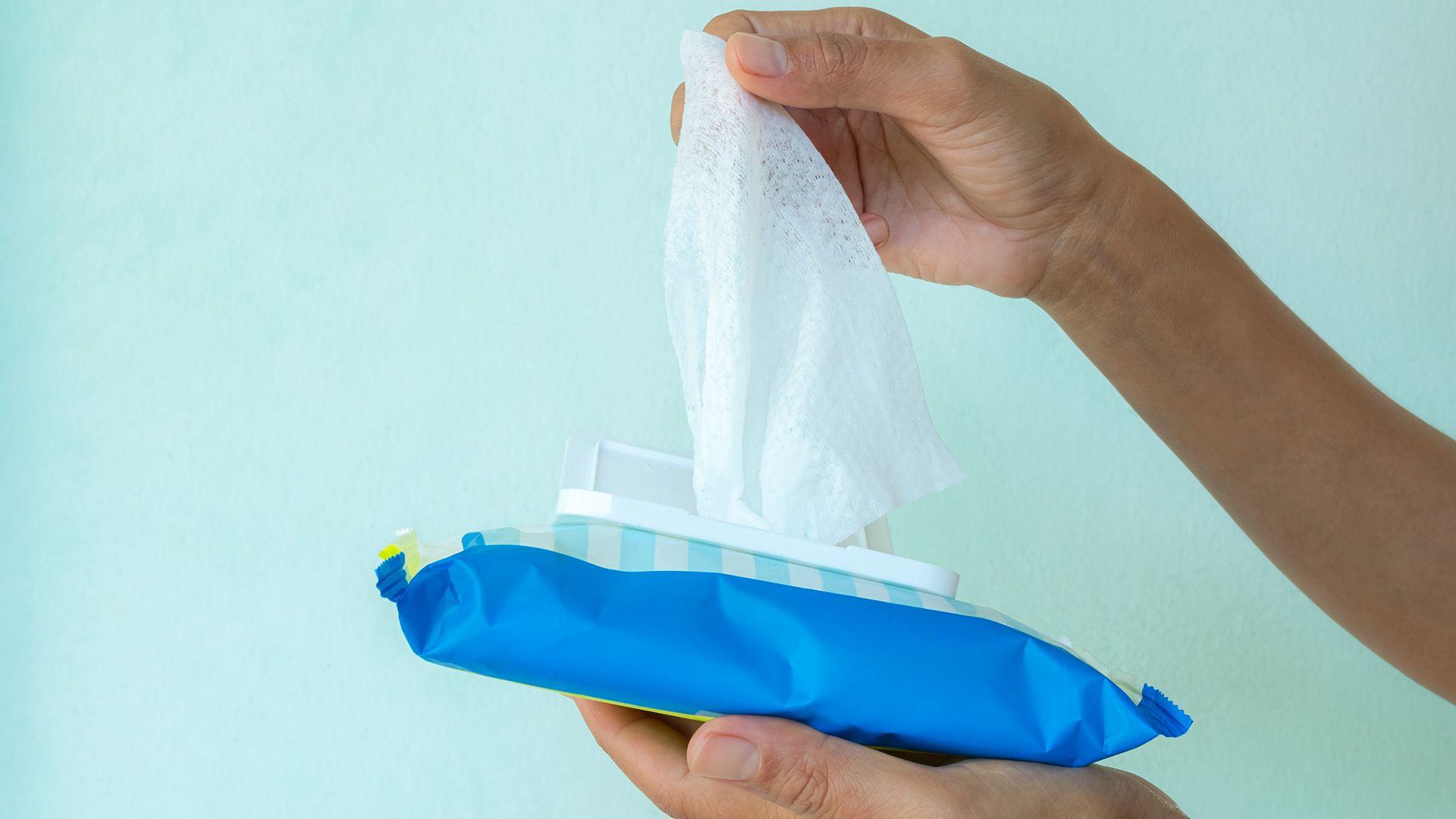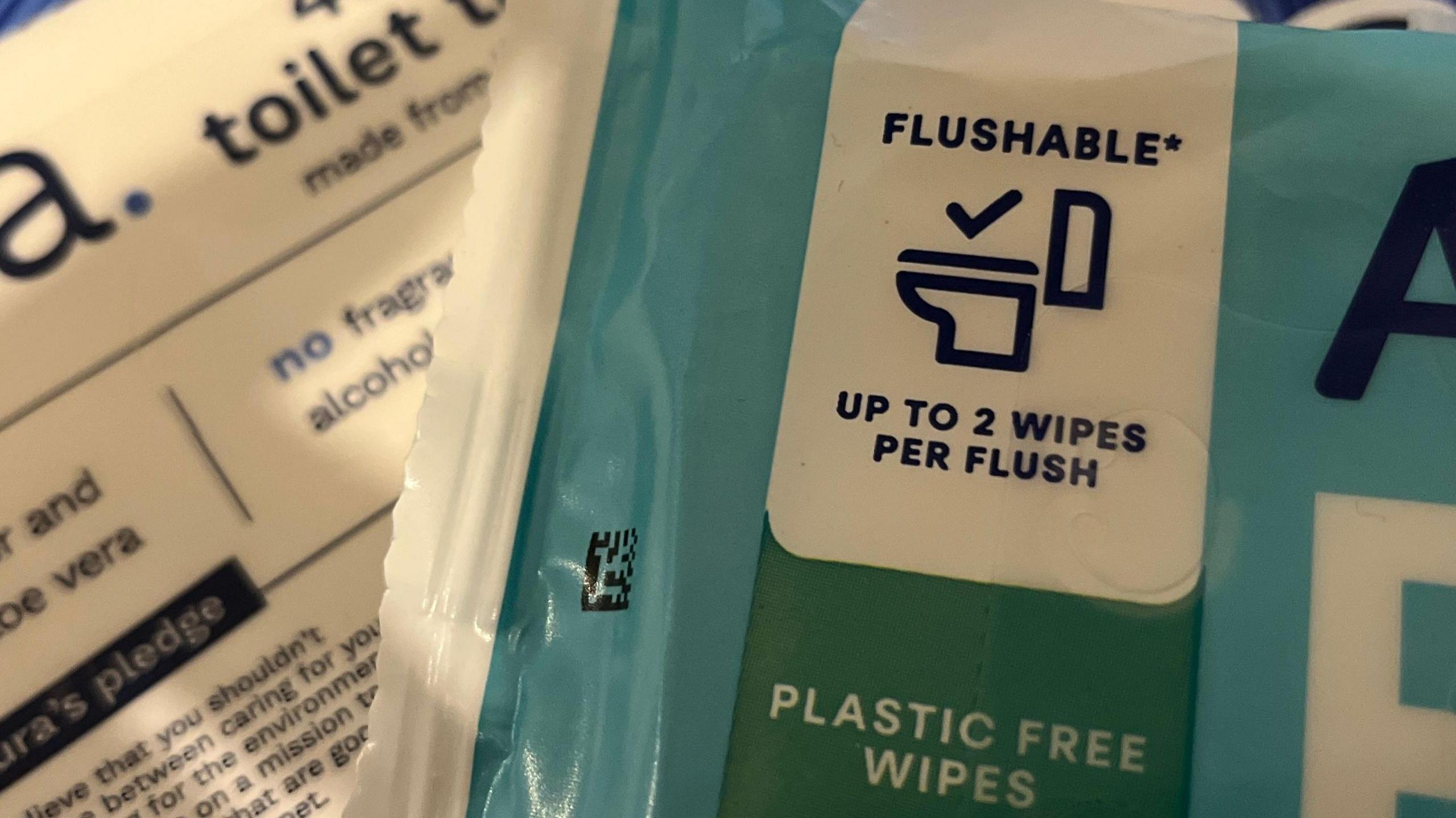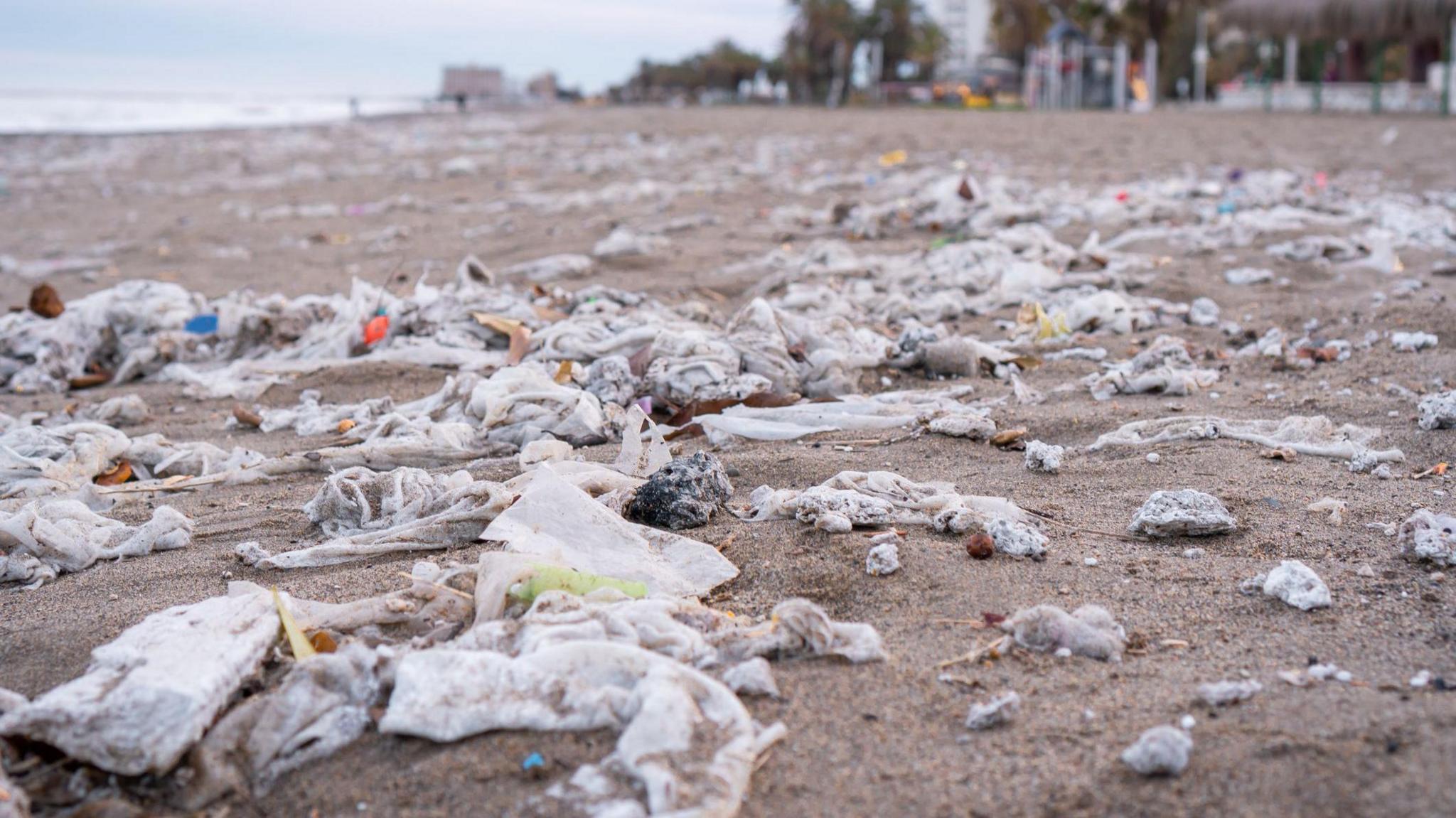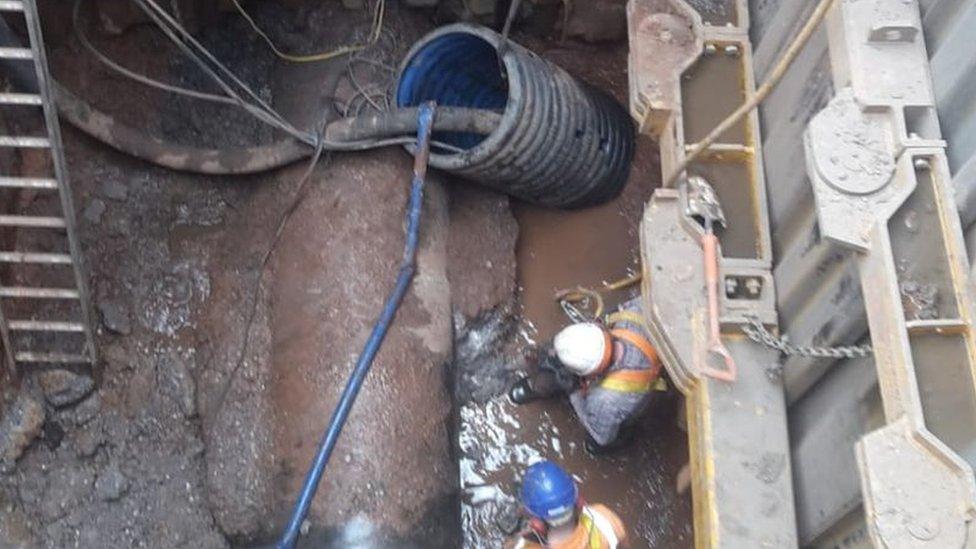Plastic wet wipes to be banned in England

- Published
A ban on selling wet wipes made from plastic will be signed into law in England on Tuesday.
The ban will start in spring 2027 in England but other parts of the UK have already committed to banning them. It's expected to come into force in Scotland, Wales and Northern Ireland during 2026.
The changes come after a consultation to find out the public's views on wipes showed 95% of people supported a ban.
So why are plastic wet wipes so bad, and are ones made of natural fibres any better? Keep reading to find out.
More on wet wipes
Wet wipes containing plastic will no longer be sold in the UK
- Published22 April 2024
Should wet wipes be banned?
- Published2 November 2021
'Revolting' wet wipe 'island' in river prompts call for ban
- Published27 June 2022
What's the problem with plastic wet wipes?
Mounds of wet wipes reshaping the River Thames
Wet wipes can be pretty handy, but many of them are being flushed down the loo, which some research has shown they're not designed to do.
According to the Department of Agriculture, Environment and Rural Affairs, the UK uses an estimated 11 billion wet wipes, and nearly 2 in every 5 of those wipes contains plastic.
Those containing plastic fibres don't break down in water like toilet paper does, so they can clump together, causing huge blockages in drains and sewers, otherwise known as fatbergs.
Water companies say it costs them £200m a year to clear them.
They can also end up in our rivers and oceans, causing harm to the wildlife that live there.
Are biodegradable wipes any better?

Even if the packet says it's flushable, experts have advised you should throw it in the bin instead of down the loo
Even if biodegradable wet wipes say they're fine to be flushed, research has shown it can still take a long time for them to break down.
Scientists from Cardiff University found even wipes that are labelled as biodegradable, which means they should break down pretty easily, shed lots of microfibres that don't degrade.
Meanwhile, scientists at the University of East Anglia are researching how long it takes for biodegradable wet wipes to break down.
They have found the wipes take months and even years to break down depending on the environment they're in.
Some of the companies who sell "flushable" wipes told the BBC that they were moist toilet tissues, but Water UK said it still viewed them as wet wipes so they shouldn't be flushed.
Does the ban go far enough?

Water companies are welcoming the move to ban plastic wet wipes but say there are still issues.
Plastic wet wipes will still be sold for medical reasons, and businesses like hotels will still be able to buy them.
Water companies and the government say it's important only the three Ps are flushed down the toilet - poo, pee and paper.
More stinky fatberg news
- Published1 May 2021

- Published28 November 2019
- Published13 September 2017
